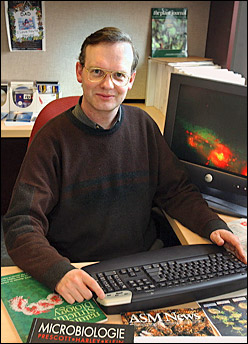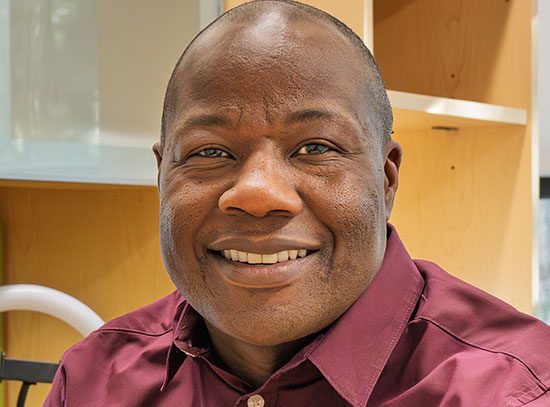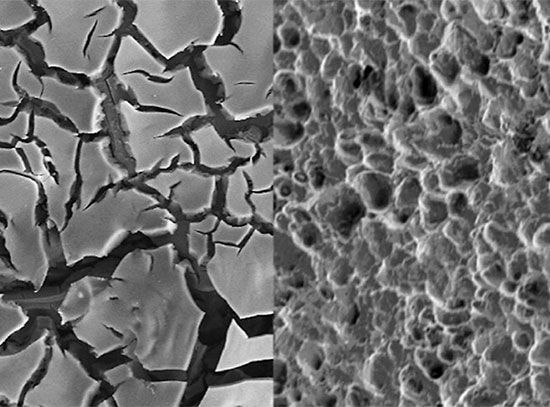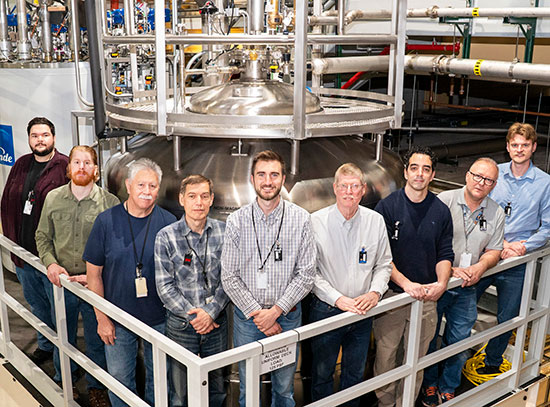BNL Scientist Aids Quest for Sustainable Biofuels Economy
October 29, 2007

Biologist Daniel (Niels) van der Lelie
Biologist Daniel (Niels) van der Lelie is known at Brookhaven and beyond for his work in phytoremediation -- using plants to clean up the environment. For the past several years, he and his wife, Safiyh Taghavi, have also been studying how plants - in particular, poplar trees -- can best be used as a sustainable feedstock to produce energy, potentially reducing our dependence on fossil fuels.
Van der Lelie and Taghavi, who came to the Lab in 2001 from the Flemish Institute for Technological Research, are collaborating with several teams of scientists searching for a path to a sustainable biofuels economy. They have been observing how endophytic bacteria that live inside plants and have beneficial effects on growth and development can affect biomass production.
"For a sustainable biofuel economy, we must have feedstock that's not competing with food," he said. "Poplar trees, for example, can grow on land not used for food production. Some bacteria naturally associated with poplar have a tremendous effect -- up to 40 percent -- on biomass production. If we can make the trees grow faster, the land will yield more fuel."
At the same time, van der Lelie and colleagues at the National Renewable Energy Laboratory are studying natural microbial communities that efficiently decompose the biomass into fermentable sugars from which they hope to produce different biofuels.
"We are bioprospecting," van der Lelie said. "We're looking for organisms that can efficiently decompose recalcitrant forms of biomass. We are looking at the enzymes produced by these organisms and how they react with biomass, alone or in synergy with others."
A number of van der Lelie's projects fall under the umbrella of the three DOE Bioenergy Science Centers based in Tennessee, Wisconsin, and California, devoted to the fundamental research needed to develop breakthrough technologies for harnessing the solar energy trapped in biomass and transforming it efficiently and economically for the production of biofuels.
2007-389 | INT/EXT | Newsroom









